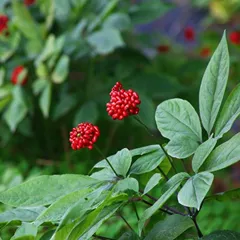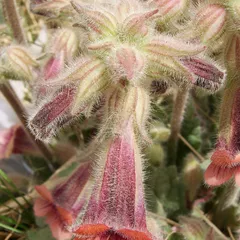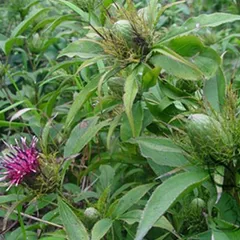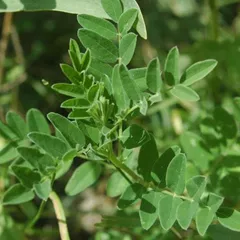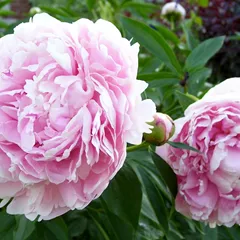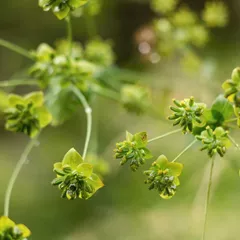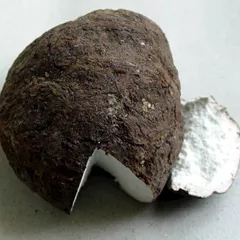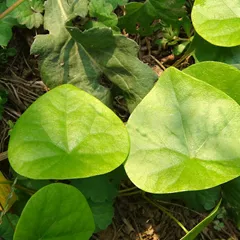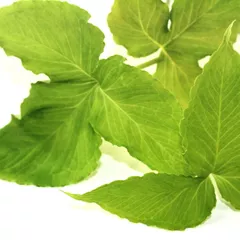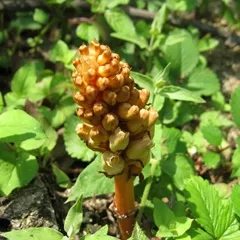Bu Zhong Yi Qi Tang
Bu Zhong Yi Qi Tang
Chinese: 补中益气汤
Pinyin: Bǔ Zhōng Yì Qì Tāng
Other names: Tonify the Middle to Augment the Qi Decoction, Ginseng and Astragalus Combination
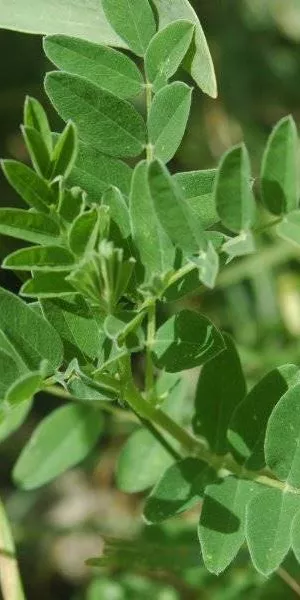
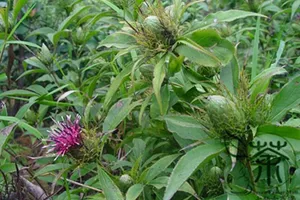
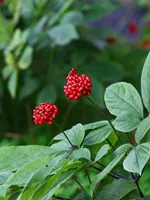
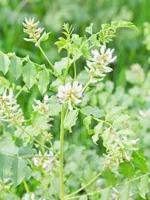




Bu Zhong Yi Qi Tang
Bu Zhong Yi Qi Tang
Chinese: 补中益气汤
Pinyin: Bǔ Zhōng Yì Qì Tāng
Other names: Tonify the Middle to Augment the Qi Decoction, Ginseng and Astragalus Combination
Number of ingredients: 10 herbs
Formula category: Formulas that tonify Qi
Conditions for which it may be prescribed: ChyluriaArrhythmiaLeukorrhea and sixteen other conditions
- Tonifies Qi of the Spleen and Stomach (Middle Burner)
- Raises the Yang
- Detoxifies
- Lifts what has sunken
Contraindications: Contraindicated for fever due to Heat from Yin Deficiency or for excess... Contraindicated for fever due to Heat from Yin Deficiency or for excess disorders caused by the contraction of external pathogens. Not recommended for all types of prolapse, but only in those due to Qi Deficiency. see more
Source date: 1247
Source book: Clarifying Doubts about Damage from Internal and External Causes
The information provided here is not a replacement for a doctor. You shouldn't use it for the purpose of self-diagnosing or self-medicating but rather so you can have a more informed discussion with a professional TCM practitioner.
Bu Zhong Yi Qi Tang is a 10-ingredient Chinese Medicine formula with Milkvetch Roots (Huang Qi) as a principal ingredient.
Invented in 1247, it belongs to the category of formulas that tonify Qi. Its main actions are: 1) tonifies Qi of the Spleen and Stomach (Middle Burner) and 2) raises the Yang.
In Chinese Medicine health conditions are thought to arise due to "disharmonies" in the body as a system. These disharmonies are called "patterns" and the very purpose of herbal formulas is to fight them in order to restore the body's harmony.
In this case Bu Zhong Yi Qi Tang is used by TCM practitioners to fight patterns like Qi Deficiency, Qi Collapsing or Qi Sinking or Spleen Qi Sinking. From a Western Medicine standpoint, such patterns can give rise to a range of conditions such as abnormal uterine bleeding, heavy menstruation or absence of menstruation for instance.
On this page, after a detailed description of each of the ten ingredients in Bu Zhong Yi Qi Tang, we review the patterns and conditions that Bu Zhong Yi Qi Tang helps treat.
The ten ingredients in Bu Zhong Yi Qi Tang
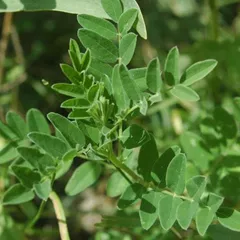
Huang Qi is a king ingredient in Bu Zhong Yi Qi Tang. Like the name indicates, it means it has more power than other ingredients in the formula.
1. Milkvetch Roots (Huang Qi)
Huang Qi strongly tonifies Qi and raises the Yang Qi of the Spleen and Stomach. It also prevents further Qi loss through leakage to the outside.

Bai Zhu is a deputy ingredient in Bu Zhong Yi Qi Tang. This means it helps the king ingredient(s) treat the main pattern or it serves to treat a coexisting pattern.
2. Atractylodes Rhizomes (Bai Zhu)
Part used: Dried rhizome
Nature: Warm
Meridian affinity: SpleenStomach
Category: Tonic herbs for Qi Deficiency
In general Bai Zhu's main actions are as follows: "Tonifies the Spleen Qi. Fortifies the Spleen Yang and dispels Damp through urination. Tonifies Qi and stops sweating. Calms restless fetus when due to Deficiency of Spleen Qi."
In the context of Bu Zhong Yi Qi Tang, it is used because it is sweet and warm and tonify the Qi of the Middle Burner.
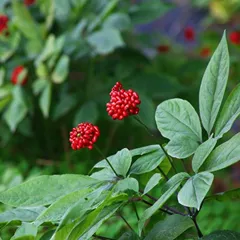
Ren Shen is a deputy ingredient in Bu Zhong Yi Qi Tang. This means it helps the king ingredient(s) treat the main pattern or it serves to treat a coexisting pattern.
3. Ginseng (Ren Shen)
Part used: Dried root
Nature: Warm
Meridian affinity: HeartLungSpleen
Category: Tonic herbs for Qi Deficiency
Ren Shen tonifies the Qi of the Middle Burner, like the other two deputy herbs (Atractylodes rhizome and Liquorice). It is worth mentioning that Ginseng being often prohibitively expensive, it is commonly substituted for Codonopsis root (Dang Shen) which has similar attributes and is much cheaper.
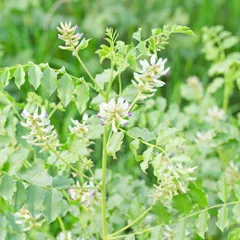
Gan Cao is a deputy ingredient in Bu Zhong Yi Qi Tang. This means it helps the king ingredient(s) treat the main pattern or it serves to treat a coexisting pattern.
4. Liquorice (Gan Cao)
Part used: Dried root and rhizome
Nature: Neutral
Taste(s): Sweet
Meridian affinity: HeartLungSpleenStomach
Category: Tonic herbs for Qi Deficiency
In general Gan Cao's main actions are as follows: "Tonifies the Basal Qi and nourishes the Spleen Qi. Clears Heat and dispels toxicity. Moistens the Lungsexpel phlegm and stop coughing. Relieves spasms and alleviates pain. Harmonizes and moderates the effects of other herbs."
In the context of Bu Zhong Yi Qi Tang, it is used because it is sweet and warm and tonify the Qi of the Middle Burner.

Dang Gui is an assistant ingredient in Bu Zhong Yi Qi Tang. This means that it either serves to reinforces the effect of other ingredients or it moderates their toxicity.
5. Dong Quai (Dang Gui)
Part used: Dried root
Nature: Warm
Meridian affinity: HeartLiverSpleen
Category: Tonic herbs for Blood Deficiency
In general Dang Gui's main actions are as follows: "Tonifies the Blood. Lubricates the Intestines. Relieve constipation. Promotes circulation and dispels Bi Pain. Reduce Dysmenorrhea and help with irregular menstruation."
In the context of Bu Zhong Yi Qi Tang, it is used because it tonifies the Qi in the Blood.
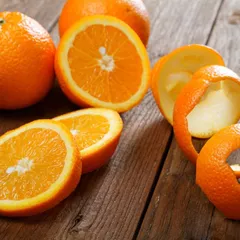
Chen Pi is an assistant ingredient in Bu Zhong Yi Qi Tang. This means that it either serves to reinforces the effect of other ingredients or it moderates their toxicity.
6. Tangerine Peel (Chen Pi)
Chen Pi facilitates the digestion of the formula's tonifying herbs and therefore increases their effectiveness.
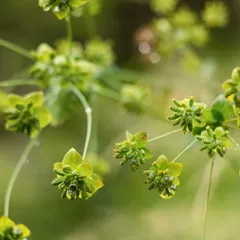
Chai Hu is an envoy ingredient in Bu Zhong Yi Qi Tang. This means that it directs the formula towards certain area of the body and/or harmonizes the actions of other ingredients.
7. Bupleurum Roots (Chai Hu)
In general Chai Hu's main actions are as follows: "Harmonizes exterior and interior. Smoothes the Liver and upraises the Yang."
In the context of Bu Zhong Yi Qi Tang, it is used because it smoothes the Liver Qi flow, relieves constraint, and rises the clear Yang.
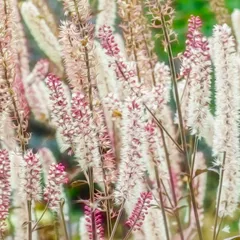
Sheng Ma is an envoy ingredient in Bu Zhong Yi Qi Tang. This means that it directs the formula towards certain area of the body and/or harmonizes the actions of other ingredients.
8. Bugbane Rhizomes (Sheng Ma)
In general Sheng Ma's main actions are as follows: "Relieves the Exterior, scatters Wind and clears Heat. Allows the release of toxicity from the skin and clears Heat. Raises the Yang associated with Middle Qi Deficiency. Directs herbs upwards. Cools the Blood."
In the context of Bu Zhong Yi Qi Tang, it is used because it helps raise the sunken Yang Qi, together with Bupleurum root (Chai Hu) - the formula's other envoy..
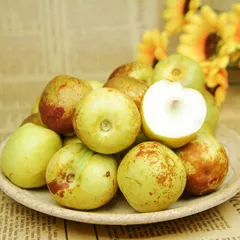
9. Jujube Dates (Da Zao)
Part used: Dried ripe fruit
Nature: Warm
Taste(s): Sweet
Meridian affinity: SpleenStomach
Category: Tonic herbs for Qi Deficiency
In general Da Zao's main actions are as follows: "Tonifies the Spleen and Stomach Qi. Tonifies the Blood. Calms the Shen (spirit). Moderates the actions of other herbs in formula."

10. Fresh Ginger (Sheng Jiang)
In general Sheng Jiang's main actions are as follows: "Relieves the Exterior and disperses Cold. Warms and circulates Qi in the Middle Burner. Calms a restless fetus and treats morning sickness. Treats seafood poisoning."
Conditions and patterns for which Bu Zhong Yi Qi Tang may be prescribed
It's important to remember that herbal formulas are meant to treat patterns, not "diseases" as understood in Western Medicine. According to Chinese Medicine patterns, which are disruptions to the body as a system, are the underlying root cause for diseases and conditions.
As such Bu Zhong Yi Qi Tang is used by TCM practitioners to treat twelve different patterns which we describe below.
But before we delve into these patterns here is an overview of the Western conditions they're commonly associated with:
Abnormal uterine bleeding Heavy menstruation Absence of menstruation Early menstruation Abnormal vaginal discharge Chronic hepatitis Arrhythmia Hypertension Chronic bronchitis Chronic rhinitis Apthous ulcers Chronic laryngitis Uterine prolapse Rectal prolapse Gastroptosis Hernial pain Urinary incontinence Leukorrhea Chyluria
Again it wouldn't be correct to say "Bu Zhong Yi Qi Tang treats abnormal uterine bleeding" for instance. Rather, Bu Zhong Yi Qi Tang is used to treat patterns that are sometimes the root cause behind abnormal uterine bleeding.
Now let's look at the twelve patterns commonly treated with Bu Zhong Yi Qi Tang.
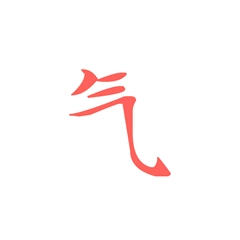
Qi is one of Chinese Medicine's vital subtances. Learn more about Qi in Chinese Medicine
Qi Deficiency
Pulse type(s): Empty (Xu), Weak (Ruo)
Tongue color: Pale
Symptoms: Fatigue Coughing Dizziness Tiredness Weak voice Amenorrhea Weak limbs Cold limbs Low energy Weak knees Empty pulse Listlessness Loose stools Palpitations Poor appetite Spermatorrhea Weak lower back General weakness Prolonged menses Daytime sweating Aversion to speak Frequent urination Pale color periods Shortness of breath Shallow respiration Spontaneous sweating Pale menstrual blood Frequent Colds or Flu Thin and watery periods Pale bright face that is puffy or bloated
Bu Zhong Yi Qi Tang is sometimes prescribed by TCM practitioners to treat Qi Deficiency. This pattern leads to symptoms such as general weakness, weak voice, fatigue and listlessness. Patients with Qi Deficiency typically exhibit empty (Xu) or weak (Ruo) pulses as well as Pale tongue.
When Qi is Deficient, it typically appears as tiredness or weakness in the body. Since Qi is lacking, it is unable to perform any of its functions. Some of the symptoms for Qi Deficiency also commonly apply for other conditions.
This may apply to any of the different types of Qi, including the Qi... read more about Qi Deficiency

Qi is one of Chinese Medicine's vital subtances. Learn more about Qi in Chinese Medicine
Qi Collapsing or Qi Sinking
Pulse type(s): Empty (Xu), Weak (Ruo)
Tongue color: Pale
Symptoms: Tinnitus Tiredness Dizziness Weak voice Hemorrhoids Listlessness Loose stools Anus prolapse Poor appetite Uterus prolapse Kidney prolapse Vagina prolapse Bladder prolapse Stomach prolapse Chronic diarrhoea Mental depression Intestines prolapse Shortness of breath Spontaneous sweating Incontinence of urine Frequent and urgent urination Bearing down sensation in abdomen
Bu Zhong Yi Qi Tang is sometimes prescribed by TCM practitioners to treat Qi Collapsing or Qi Sinking. This pattern leads to symptoms such as uterus prolapse, bladder prolapse, stomach prolapse and kidney prolapse. Patients with Qi Collapsing or Qi Sinking typically exhibit empty (Xu) or weak (Ruo) pulses as well as Pale tongue with white coating.
Qi Collapse (or "Qi Sinking") is a form of Qi Deficiency so there are overlapping symptoms such as general weakness, fatigue, aversion to speak, short of breath, dizziness and etc.
On top of that, the weakened Qi fails to perform its holding functions, hence the prolapsing of the Organs. The... read more about Qi Collapsing or Qi Sinking
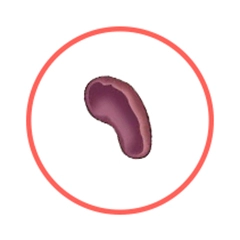
The Spleen is a so-called "Zang" Organ. Learn more about the Spleen in Chinese Medicine
Spleen Qi Sinking
Pulse type(s): Weak (Ruo)
Tongue color: Pale
Symptoms: Obesity Tiredness Lassitude Pale face Weak Limbs Depression Hemorrhage Overweight Menorrhagia Hemorrhoids Loose stools Poor appetite Anus prolapse Uterus prolapse Stomach prolapse Bladder prolapse Frequent urination Feeling of bearing down Slight abdominal distension after eating
Bu Zhong Yi Qi Tang is sometimes prescribed by TCM practitioners to treat Spleen Qi Sinking. This pattern leads to symptoms such as poor appetite, slight abdominal distension after eating, feeling of bearing down and tiredness. Patients with Spleen Qi Sinking typically exhibit weak (Ruo) pulses as well as Pale tongue.
The causes of Spleen Qi Sinking is quite similar to the ones of Spleen Qi Deficiency, which are unbalanced diet, unhealthy eating habits, emotional stress or Damp environment. Other than these, people who have to stand up for long hours every day have a tendency to obtain this pattern.
Spleen Qi... read more about Spleen Qi Sinking
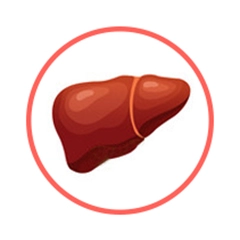
The Liver is a so-called "Zang" Organ. Learn more about the Liver in Chinese Medicine
Liver Qi Deficiency
Pulse type(s): Weak (Ruo)
Symptoms: Fatigue Timidity Dizziness Indecision Depression Nervousness Irritability Easily scared Poor appetite Blurred vision Lack of courage Restless dreams Floaters in eyes Frequent sighing Abdomen distension Irregular menstruation Hypochondrial distention
Bu Zhong Yi Qi Tang is sometimes prescribed by TCM practitioners to treat Liver Qi Deficiency. This pattern leads to symptoms such as dizziness, blurred vision, floaters in eyes and nervousness. Patients with Liver Qi Deficiency typically exhibit weak (Ruo) pulses.
It is more common to see Liver Qi Deficiency accompanying other patterns.
The most obvious one is Liver Qi Stagnation. One of Liver's main functions is to ensures the smooth flow of Qi throughout the body, in all Organs and in all directions. This function is impaired when the Qi in Liver is... read more about Liver Qi Deficiency
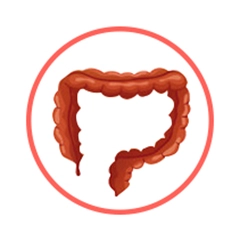
The Large Intestine is a so-called "Fu" Organ. Learn more about the Large Intestine in Chinese Medicine
Large Intestine collapse
Pulse type(s): Deep (Chen), Weak (Ruo), Fine (Xi)
Symptoms: Fatigue Cold limbs Haemorrhoids Anus prolapse Poor appetite Chronic diarrhoea Mental exhaustion Thirst for warm drinks
Bu Zhong Yi Qi Tang is sometimes prescribed by TCM practitioners to treat Large Intestine collapse. This pattern leads to symptoms such as chronic diarrhoea, anus prolapse, haemorrhoids and fatigue. Patients with Large Intestine collapse typically exhibit deep (Chen), weak (Ruo) or fine (Xi) pulses.
Large Intestine Collapse is a kind of Qi Deficiency in the Large Intestine but the condition is much more severe than any normal Qi Deficiency. It is mostly caused by prolonged Spleen, Stomach and Large Intestine Qi Deficiency, or even Spleen Qi Sinking. All above patterns can give rise to chronic... read more about Large Intestine collapse
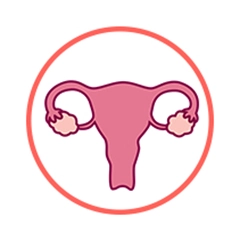
The Uterus is a so-called "Extraordinary" Organ. Learn more about the Uterus in Chinese Medicine
Damp-Phlegm in the Uterus
Pulse type(s): Slippery (Hua)
Symptoms: Edema Nausea Oedema Fatigue Obesity Dizziness Moodiness Amenorrhea Overweight Depression Late period Infertility Heavy limbs Loose stools Listlessness Palpitations Ovarian cysts Sputum throat Lack strength Scanty periods Ovarian myomas Chest fullness Vagina discharge Phantom pregnancy Shortness of breath Sore and weak limbs Lower abdominal pain Abodominal heaviness Dull-pale complexion Pale menstrual blood Dizziness or vertigo Feeling of heaviness Thick menstrual blood Sticky menstrual blood Brown vaginal discharge Polycystic ovary syndrome Excessive vaginal discharge Feeling of heaviness of body Menstruation decreases gratually Feeling of oppression of the chest
Bu Zhong Yi Qi Tang is sometimes prescribed by TCM practitioners to treat Damp-Phlegm in the Uterus. This pattern leads to symptoms such as late period, amenorrhea, scanty periods and lower abdominal pain. Patients with Damp-Phlegm in the Uterus typically exhibit slippery (Hua) pulses.
Whenever the body has Dampness or Phlegm, the Spleen is always the first Organ to be checked, because it is responsible for Body Fluids metabolism. The Spleen transforms, transports, and distributes drinks along with food Essence and Grain Qi.
When these functions are impaired, Damp-Phlegm forms... read more about Damp-Phlegm in the Uterus

The Spleen is a so-called "Zang" Organ. Learn more about the Spleen in Chinese Medicine
Spleen Yang Deficiency
Pulse type(s): Deep (Chen), Slow (Chi), Weak (Ruo)
Tongue color: Pale
Symptoms: Gas Edema Chills Fatigue Bloating Lassitude Cold limbs Weak Limbs Loose stools Poor appetite Pale complexion Feeling of cold Vagina discharge Sallow complexion Desire to lie down curled up Undigested food in the stools Slight abdominal distension after eating Abdominal pain and distension relieved by pressure and warmth
Bu Zhong Yi Qi Tang is sometimes prescribed by TCM practitioners to treat Spleen Yang Deficiency. This pattern leads to symptoms such as slight abdominal distension after eating, lassitude, desire to lie down curled up and pale complexion. Patients with Spleen Yang Deficiency typically exhibit deep (Chen), slow (Chi) or weak (Ruo) pulses as well as Pale and wet tongue .
Generally speaking, Spleen Yang Deficiency often develops from Spleen Qi Deficiency, but it is more extensive and severe. The common manifestations are these related to digestive functions such as loose stools, poor appetite, slight abdominal distension and pain after eating, gas and bloating.... read more about Spleen Yang Deficiency

Qi is one of Chinese Medicine's vital subtances. Learn more about Qi in Chinese Medicine
Qi and Blood Deficiency
Pulse type(s): Slowed-down (Huan), Weak (Ruo), Fine (Xi)
Tongue coating: Partial absence of coating
Tongue color: Pale
Symptoms: Edema Fatigue Vertigo Anxiety Insomnia Dry hair Dry skin Dry lips Tingling Numbness Dry eyes Pale face Dizziness Pale lips Hair loss Tiredness Sore back Weak voice Sore knees Depression Low energy Poor memory Pale tongue Watery milk Palpitations Listlessness Loose stools Poor appetite Scanty periods Blurred vision Low milk supply Pale complexion General weakness Aversion to speak Pale color periods Shortness of breath Numbness in the skin Spontaneous sweating Lower abdominal pain Pale menstrual blood Numbness in the limbs Dream disturbed sleep Dull menstrual cramps Feeling of bearing down Thin and watery periods Withered and brittle nails Thin body lacking strength Pain relieved with massage Lethargic and withdrawn state Spontaneous flow of breast milk Menstruation decreases gratually No feeling of distension of the breasts Insufficient or absent lactation after childbirth
Bu Zhong Yi Qi Tang is sometimes prescribed by TCM practitioners to treat Qi and Blood Deficiency. This pattern leads to symptoms such as general weakness, fatigue, weak voice and pale face. Patients with Qi and Blood Deficiency typically exhibit slowed-down (Huan), weak (Ruo) or fine (Xi) pulses as well as Pale tongue with thin white coating .
The Qi and Blood are from the some origin and these two elements are transformable between each other. The Qi creates the Blood, and vice versa the Blood supplies Qi. Therefore it is quite common both patterns appear at the same time.
When general Qi is Deficient, the patients lack the energy to... read more about Qi and Blood Deficiency

The Spleen is a so-called "Zang" Organ. Learn more about the Spleen in Chinese Medicine
Spleen or Kidney Qi Deficiency
Pulse type(s): Deep (Chen), Weak (Ruo)
Tongue color: Pale
Symptoms: Fatigue Dizziness Pale face Palpitations Early periods Lack strength Lower back pain Feeling of cold Shortness of breath Pale menstrual blood Thin menstrual blood Spontaneous sweating Frequent night urination
Bu Zhong Yi Qi Tang is sometimes prescribed by TCM practitioners to treat Spleen or Kidney Qi Deficiency. This pattern leads to symptoms such as early periods, pale menstrual blood, lower back pain and dizziness. Patients with Spleen or Kidney Qi Deficiency typically exhibit deep (Chen) or weak (Ruo) pulses as well as a pale tongue.

The Spleen is a so-called "Zang" Organ. Learn more about the Spleen in Chinese Medicine
Spleen Deficiency
Pulse type(s): Weak (Ruo)
Tongue coating: Thick white coating
Tongue color: Pale
Symptoms: Edema Tiredness Dull face Sore back Depression Cold limbs Amenorrhea Weak Limbs Loose stools Poor appetite White vaginal discharge Sticky vaginal discharge
Bu Zhong Yi Qi Tang is sometimes prescribed by TCM practitioners to treat Spleen Deficiency. This pattern leads to symptoms such as sticky vaginal discharge, tiredness, depression and cold limbs. Patients with Spleen Deficiency typically exhibit weak (Ruo) pulses as well as a pale tongue with thick white coating.

Qi is one of Chinese Medicine's vital subtances. Learn more about Qi in Chinese Medicine
Qi Deficiency Fever
Pulse type(s): Empty (Xu)
Tongue color: Pale
Tongue shape: Swollen
Symptoms: Aversion to cold Spontaneous sweating Thirst for warm drinks Intermittent fever that worsens upon exertion
Bu Zhong Yi Qi Tang is sometimes prescribed by TCM practitioners to treat Qi Deficiency Fever. This pattern leads to symptoms such as intermittent fever that worsens upon exertion, spontaneous sweating, aversion to cold and thirst for warm drinks. Patients with Qi Deficiency Fever typically exhibit empty (Xu) pulses as well as a pale tongue.

The Spleen is a so-called "Zang" Organ. Learn more about the Spleen in Chinese Medicine
Spleen and Stomach Qi Deficiency
Pulse type(s): Weak (Ruo)
Tongue color: Pale
Symptoms: Fatigue Deafness Tinnitus Belching Vomiting Diarrhea Dizziness Pale face Pale lips Weak voice Watery milk Unsteadiness Loose stools Poor appetite Blurred vision Pale complexion Shortness of breath Abdominal distension Lower abdominal pain No feeling of distension of the breasts Insufficient or absent lactation after childbirth
Bu Zhong Yi Qi Tang is sometimes prescribed by TCM practitioners to treat Spleen and Stomach Qi Deficiency. This pattern leads to symptoms such as dizziness, unsteadiness, blurred vision and deafness. Patients with Spleen and Stomach Qi Deficiency typically exhibit weak (Ruo) pulses as well as a pale tongue.
Formulas similar to Bu Zhong Yi Qi Tang
Ba Zhen Tang is 60% similar to Bu Zhong Yi Qi Tang
Gui Pi Tang is 58% similar to Bu Zhong Yi Qi Tang
Ren Shen Yang Rong Tang is 57% similar to Bu Zhong Yi Qi Tang
Jia Wei Xiao Yao San is 50% similar to Bu Zhong Yi Qi Tang
Fang Ji Huang Qi Tang is 50% similar to Bu Zhong Yi Qi Tang
Ban Xia Bai Zhu Tian Ma Tang is 50% similar to Bu Zhong Yi Qi Tang

